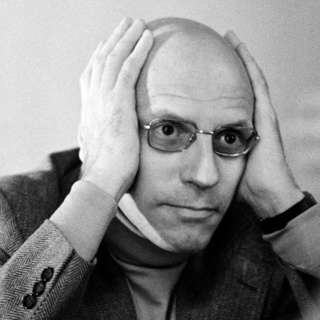
The Gay Science #7 (II.76-II.83)
"Many lies tell the poets" - Homer. Nietzschean exploration of art, of truth and appearance in the artistic world, the way that madness, art and ritual relate, and the translation of artistic expression into different cultural contexts. Join me for this continuation of our The Gay Science readthrough!
7 Marras 20241h 45min

All Hallow's Special - Robert Chambers' Repairer of Reputations, featuring Mynaa
In this episode, Mynaa and I discuss The Repairer of Reputations, the first story in Robert Chambers' collection, The King in Yellow. Concepts in Chambers work contributed to the creation of the 'weird fiction' genre, and remain influential on media today - including the King in Yellow, the notion of a book that can drive you mad, and names such as Carcossa and the Hyades. We've delved into the topic of madness quite thoroughly on the podcast recently, so it only seemed fitting to continue the discussion through to the Halloween episode. Our topics include a broader discussion of madness and society, the unreliable narration of the protagonist, how his delusional fantasies reflect his political madness, the "lethal chamber" and its meaning, and much more. HAPPY HALLOWEEN!
31 Loka 20241h 53min

105: Arthur Machen - The Great God Pan
Samhain is fast approaching, and this week we're going to have two spooky episodes of the podcast. This episode will be a philosophical exploration of the significance of Arthur Machen's weird fiction/horror novella, "The Great God Pan". While I'd originally planned this for the second leg of the season, we're interrupting The Gay Science readthrough for the sake of the holiday, and because this story brings together many of the elements that we've discussed so far this season, namely: madness, the horror of science, the gulf between appearance and reality, and the Dionysian reaching out from ages past to disturb the modern world. Join me for a romp through the woods with our new friends Helen, and The Great God Pan!
29 Loka 20241h 38min

The Gay Science #6 (II.57-75)
Welcome back to The Gay Science! In this episode we commence with book II, which begins with an exploration of perspectivism and the pitfalls of scientific realism, and quickly moves into ruminations on women and relationships. It's no one's favorite part of Nietzsche, but in this talk we'll clean all of the philosophical meat off of the bone, because Nietzsche actually has some genuinely valuable insights in these sections. Cheers!
22 Loka 20241h 47min

104: Donna Tartt - The Secret History
Donna Tartt's novel The Secret History is a loveletter to Greek tragedy, that begins with a dedication from Nietzsche and Plato. Central to the story is the concept of the Dionysian, and the attempt of the main characters to experience the Dionysian. Richard Papen's fatal flaw is his "morbid longing for the picturesque at all costs". His undying quest for a beautiful aesthetic life leads him to become part of an elite clique of students at Hampden College in Vermont. All six of them are under the sway of a charismatic and mysterious professor named Julian Morrow. After his friends accidentally kill someone while attempting a modern-day bacchanalia, Richard finds himself drawn into their crime, as he does everything he can to help them cover it up. This year becomes the defining event of Richard's life, and the story is his retelling of this 'secret history' of how he became what he is. We will examine the novel's use of truth and appearance, and how the Dionysian in this story serves as a "pure fire of being" which burns away the false appearances of the characters in order to unify their appearance and essence, and force each person's nature to draw its final consequences.
8 Loka 20242h 5min

103: Euripedes - The Bacchae
The Bacchae is a parennially popular Greek tragedy that portrays the coming of Dionysus to Greece. The Dionysian strikes Hellas like a wave of madness, and the play is full of miracles, illusions and other violations of the natural order. Often interpreted as a play about the conflict between religious experience and established dogma, or between the old order and the new, The Bacchae continues to fascinate because of the many layers of meaning that belie any easy analysis. We'll briefly discuss Nietzsche's opinion of Euripedes, and the ways in which Euripedes innovated the tragic form. Then we'll dive into the text and analyze the themes of the play.
1 Loka 20241h 58min

102: Michel Foucault - Madness & Civilization
Michel Foucault is one of the most influential philosophical thinkers of the 20th century. He remains a controversial figure, but undoubtedly he had a profound impact on the way we think about mental health and mental illness up to the present day. In this episode, we take a deep dive into his work, Madness & Civilization: A History of Insanity in the Age of Reason, based on his dissertation. In this work, Foucault charts a history of how madness was perceived and experienced in the western world, exploring the changes in understanding of insanity from the Middles Ages, to the Renaissance, to the Classical period (17th & 18th centuries), to the 19th century creation of the mental asylum, and finally to the foundation of psychoanalysis.
24 Syys 20241h 29min

101: Aeschylus - The Oresteia
Aeschylus' Oresteia is the only extant trilogy of Greek drama. Alongside the Parthenon, the Oresteia is considered one of the two greatest 'monuments' to the Golden Age of Athens. In this trilogy - The Agamemnon, The Libation Bearers, and The Eumenides - Aeschylus dramatizes a rite of passage from savagery to civilization. Over the course of the narrative, the ancient law of blood is overcome by a new civic law, sanctioned by the gods. The word "justice" (Dikê) is used more often in the Oresteia than in any other Greek tragedy. Through these verses, we witness a struggle from the hazy, mysterious world of archaic Greece, governed by gods who behaved capriciously and unpredictably, into the clarity of civic life, in which human beings are empowered to make the contextual decisions of governance. Michael D. Davis, lectures on Philosophy of Tragedy: https://youtube.com/playlist?list=PLiyEzRZtxXGU_Q5-jFqhIHJYbsahnQBNd&si=7o-LZMjQfX5Mb657 Episode art: John Singer Sergeant - Orestes Pursued by the Furies
17 Syys 20241h 51min






















